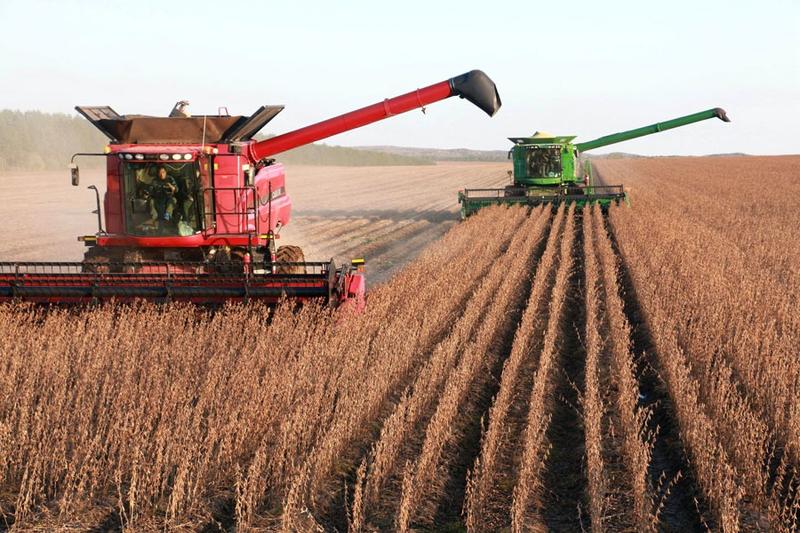 Soybeans are harvested in Heilongjiang province. (PHOTO / XINHUA)
Soybeans are harvested in Heilongjiang province. (PHOTO / XINHUA)
Making a law guaranteeing food security has been put on the work agenda this year of the Standing Committee of National People's Congress, China's top legislature, a senior legislator said.
After Xi stressed the need to put an end to the wasting of food and build a long-term system to prevent it in August last year, the top legislature established a special team to research and solve the problem through legislation
"Specifications on saving food and reducing losses in food processing, storage and transportation will be clarified in the draft law," Yuan Jie, head of the administrative law department of the NPC Standing Committee's Legislative Affairs Commission, said early this month.
The legislative work is another step toward implementing a central leadership call for the country to promote healthy, rational and green lifestyles and consumption habits.
READ MORE: Focus on food security pays off
Since the 18th National Congress of the Communist Party of China in 2012, President Xi Jinping has frequently emphasized the need to stop the wasting of food, but the problem still exists, is often complained about by the public and has been described as a "stubborn disease".
After Xi stressed the need to put an end to the wasting of food and build a long-term system to prevent it in August last year, the top legislature established a special team to research and solve the problem through legislation.
In December, a 32-article draft law on curbing food waste was submitted to the NPC Standing Committee for a first review. Drafting of the law was based on similar overseas laws, rules and regulations, surveys of catering service providers and visits by legislators to such establishments.
The draft not only clarifies the responsibilities of individual entities, including restaurants and consumers, but also calls on governments to play a stronger supervisory role in curbing food waste.
It says, for example, that catering services could face fines ranging from 1,000 yuan to 10,000 yuan (US$155 to US$1,550) if they encourage or mislead consumers into ordering excessive quantities of food that causes waste, and refuse to correct the problem after being warned by market supervision departments.
The draft also bans the making or broadcasting of programs or videos featuring excessive eating, adding that violators who decline to rectify the problem after being warned by cyberspace administrations will be fined from 10,000 yuan to 100,000 yuan.
When the top legislature deliberated on the draft at the end of last year, some lawmakers questioned an article that would allow restaurants to ask consumers who waste a lot of food to pay a charge based on the amount of leftovers, saying it would be difficult to implement.
They suggested the top legislature modify the article in a timely manner, "or else it may easily create disputes between catering service providers and consumers", Liu Zhengkui, a member of the NPC's Financial and Economic Affairs Committee, said when reviewing the draft.
ALSO READ: Progress in seeds, yields cultivate food security
Zheng Shuna, a member of the NPC Standing Committee, agreed, saying, "The measure will be impractical because it doesn't specify how much food ordered by consumers can be identified as waste and how much restaurants can charge consumers for leftovers."
Highlighting the importance of curbing food waste, Yuan, from the Legislative Affairs Commission, added that it will make more efforts to improve the draft as it also works on the new law on guaranteeing food security, ensuring coordination and cohesion in legislation.
Livelihood-related lawmaking and amendments will be a priority this year, commission spokesman Zang Tiewei said last month, illustrating the top legislature's determination to offer people better lives through legislation.


